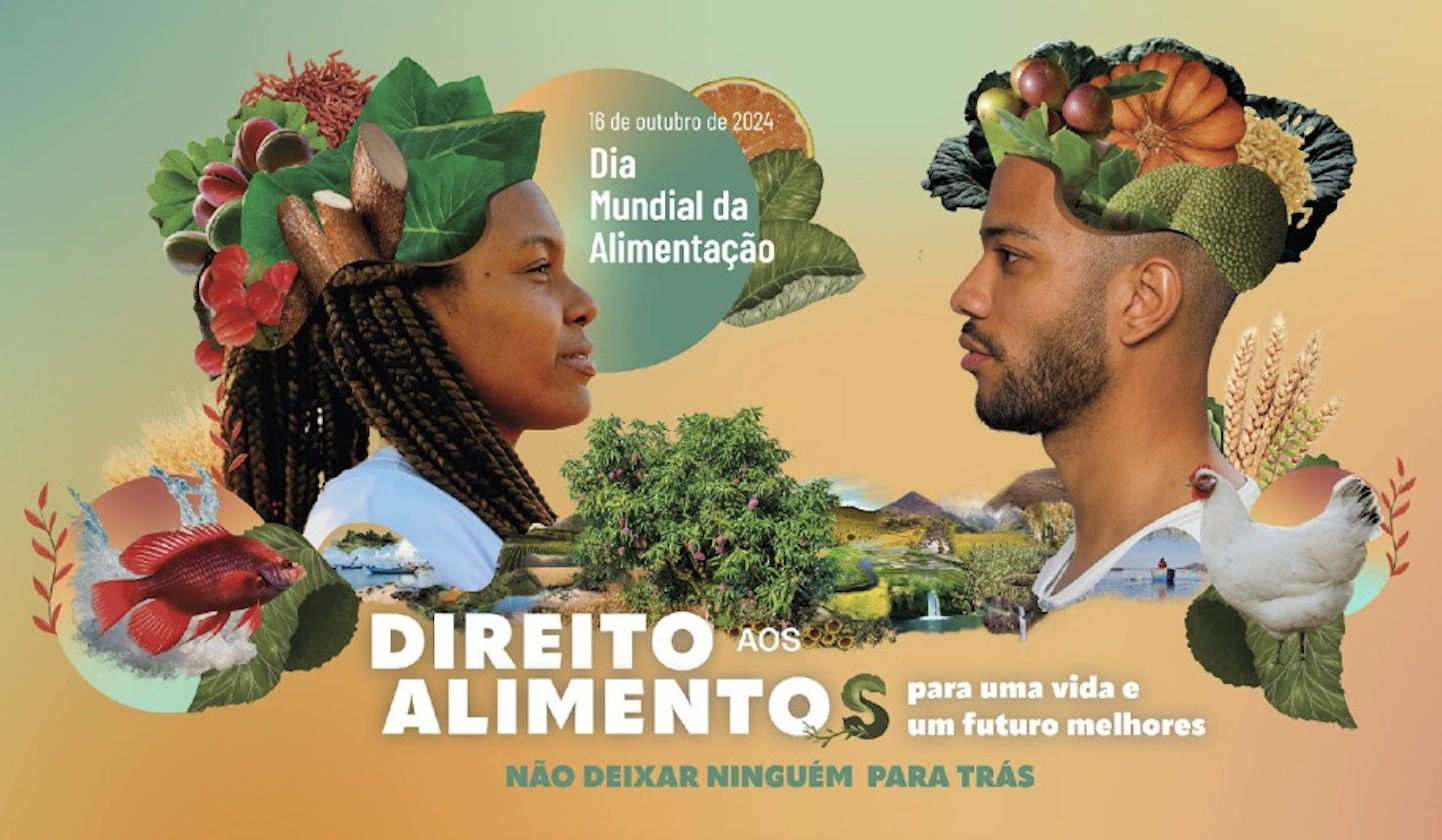
WFP, FAO, IFAD and IICA are promoting the World Food Day campaign, celebrated on 16 October, warning that food for all is a right that is still far from being respected.
Around 733 million people go hungry in the world, while 2.8 billion – more than a third of the population – are unable to access a healthy diet. Although the right to food is internationally recognized, its full implementation is still far from being achieved.
World Food Day (WFD), celebrated on 16 October, seeks to raise global awareness of the issue and mobilize the efforts of civil society, private enterprise, governments and academia to tackle this reality. In 2024, the campaign will focus on ‘The right to food for a better future and a better life’.
The initiative is jointly promoted by the World Food Programme (WFP), the Food and Agriculture Organization of the United Nations (FAO), the International Fund for Agricultural Development (IFAD) and the Inter-American Institute for Cooperation on Agriculture (IICA), institutions that work in Brazil to support rural development and food security.
Jorge Meza, the FAO Representative in Brazil, recalls that the aim of the campaign is to raise awareness of the importance of universal access to nutritious, safe and sustainable food. ‘Of the more than 6,000 species of food plants that exist, only nine account for two thirds of what we consume. We need to adapt our agri-food systems so that our fields, fishing nets, markets and tables offer diverse and healthy food, produced without impacting the environment. And we need to make this food accessible.
In this sense, Arnoud Hameleers, IFAD’s Country Director in Brazil, emphasizes the role of rural transformation in changing this reality. ‘Public and private investment in family farming helps reduce poverty and hunger in the countryside and increases the supply of nutritious food. After all, small farmers produce most of the food that reaches Brazilians’ tables and employ three quarters of the agricultural labor force. It is crucial that we support these farmers to strengthen their resilience and productivity in a climate change environment, while promoting new forms of sustainable production. Family farming can and must play a key role in reducing hunger and poverty in the country,’ he said.
IICA estimates that 59 million people live in rural poverty in Latin America and the Caribbean (LAC), despite the fact that the region produces food for 1.3 billion people worldwide, making it the largest net exporter of food. For IICA’s Representative in Brazil, Gabriel Delgado, innovation is one of the keys to transforming food production and sustainability. ‘We need to invest in family farming, in bioeconomy initiatives, in strengthening the market for farmers, especially small ones, and in sustainability. It is impossible to think about the right to food and the eradication of hunger without focussing on the need to transform food systems and create new opportunities for economic development in the countryside to ensure that agriculture is sustainable and resilient to climate change.
In cities, one of the food challenges is the tendency of new generations to spend less and less time preparing meals at home, consuming more and more ultra-processed foods. In many places, these foods are cheaper and easier to find than fresh, nutritious products. The consequence has been malnutrition in the form of micronutrient deficiencies and obesity: currently, around 2.5 billion adults and 37 million children under the age of five are obese.
Daniel Balaban, Director of the WFP Centre of Excellence against Hunger in Brazil, points out that this unbalanced diet not only affects people’s health and quality of life, but also causes disease, with social and economic consequences for families, communities and governments. ‘We need to encourage the production and sale of more nutritious food and provide consumers with accurate and consistent information about food products and healthy choices. Programmes such as school feeding, for example, are invaluable in ensuring that children are well fed and create good eating habits that they will carry into adulthood’.
Progress in Brazil
In Brazil, the World Food Day campaign has the support of the federal government, through the ministries of Development and Social Assistance, Family and Fight against Hunger (MDS) and Agrarian Development and Family Farming (MDA). The initiative reinforces the country’s commitment to strengthening food security, emphasizing its alignment with the agenda of international organizations in pursuit of the Sustainable Development Goals (SDGs).
Brazil has stood out internationally in the fight against hunger in recent decades. Programmes such as Bolsa Família and Fome Zero have become benchmarks for other regions and enabled the country to leave the Hunger Map in 2014 – which occurs when the prevalence of undernourished people falls below 2.5% in a three-year period.
With the pandemic and the dismantling of government programmes, Brazil was once again on the Hunger Map in 2021, reaching 4.2% undernourishment in the 2020-2022 average. However, with the rearticulation of the social protection network in recent years, hunger figures have fallen again. The number of undernourished people stood at 3.9 per cent on average between 2021 and 2023. If the rate of reduction is maintained, the percentage of hungry people could return to below 2.5 per cent.
The Brazilian government’s priority in relation to the issue is reflected in the creation of the Brazil Without Hunger Plan and, internationally, in the initiative, proposed under the G20 presidency, of a Global Alliance against Hunger and Poverty, to be launched in November in Rio de Janeiro.




